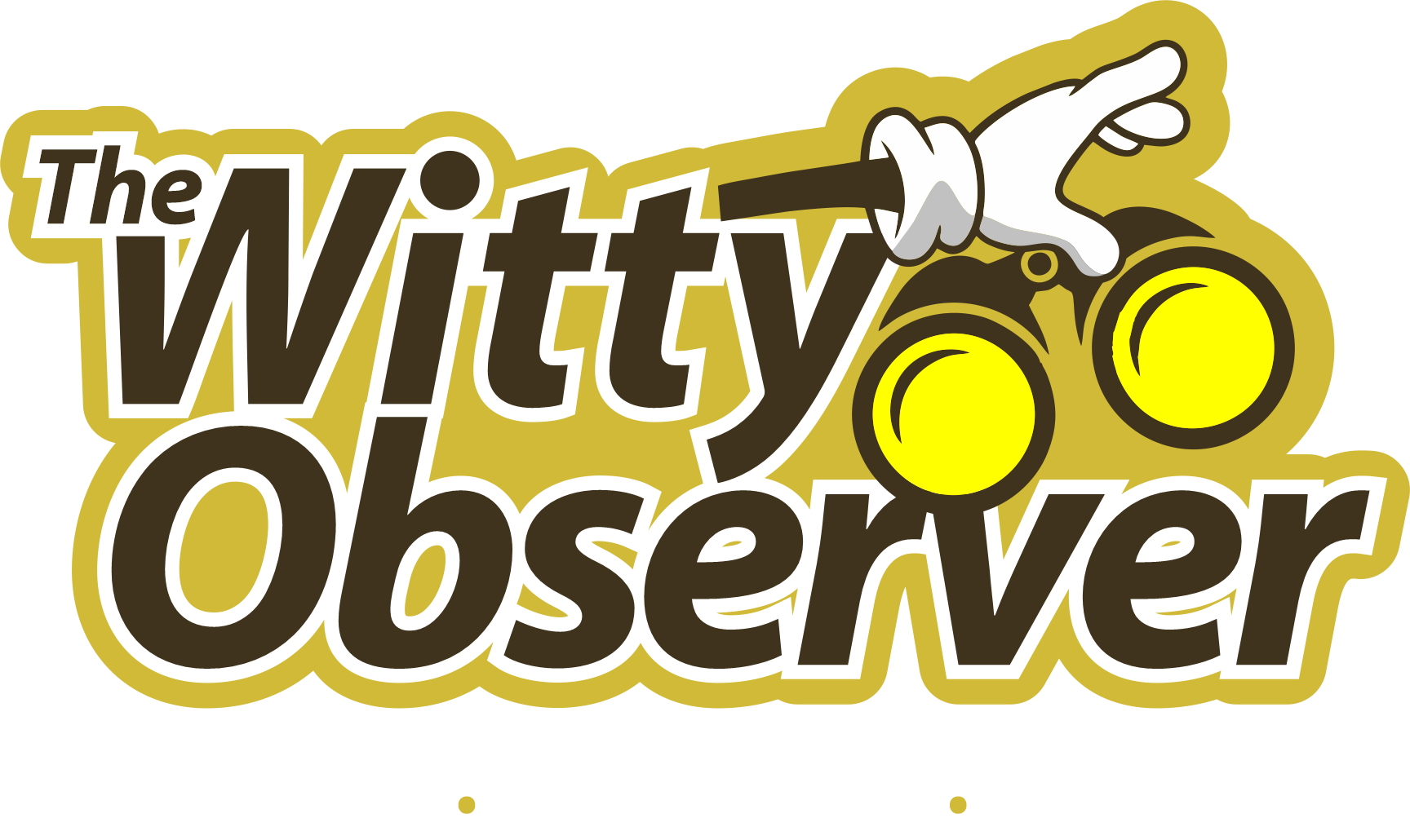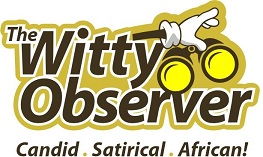Africa, you are not a child. Stop waiting for crumbs that fall from someone else’s table.
I tried hard to avoid this topic, but my friend Adobea informed me last week that USAID had placed her on administrative leave. During our 33-minute conversation, she vehemently denied the allegations against her organisation. I scarcely uttered a word.
Think of it like this: America’s favourite charitable organisation, USAID, has been unwittingly acting as a sugar daddy to Boko Haram. Yeah, you heard that right.
This explosive allegation didn’t emerge in a vacuum. It came through an unexpected channel that deserves a thorough examination.
Department of Government Efficiency (DOGE)

President Donald Trump established the Department of Government Efficiency (DOGE) on 20 January 2025 through an executive order. This temporary, technology-driven task force, led by billionaire entrepreneur Elon Musk, aims to modernise federal technology and maximise efficiency. Set to expire on 4 July 2026, DOGE represents Washington’s latest experiment in “doing more with less.” White House
Congressman Scott Perry’s Explosive Allegations
During a House Subcommittee hearing on Government Efficiency, Congressman Scott Perry (R-PA) made a stunning claim: that USAID has funnelled approximately $697 million annually to terrorist groups, including Boko Haram. While his allegations remain unverified, they have ignited fierce debate and calls for deeper investigations.
USAID has categorically denied these allegations, stating that strict oversight mechanisms are in place to ensure funds reach intended recipients. The U.S. Embassy in Nigeria has also responded, emphasising that there is no evidence to support the claim that USAID funds Boko Haram or any terrorist group in Nigeria. (vanguardngr.com)
Here’s where it becomes intriguing. While USAID believes it’s spreading democracy like butter on toast, it may be buttering up the wrong side of history. It’s akin to sending your child to school with lunch money only to discover it’s providing food to the school bully.
Multiple watchdog organisations have raised concerns about the accountability of aid distribution, especially in conflict zones. Transparency International, for instance, has reported that in some countries, a lack of clear criteria and transparency has allowed corrupt officials to divert humanitarian aid, enriching themselves at the expense of intended beneficiaries. Transparency International
Similarly, the U.S. Government Accountability Office (GAO) has identified information technology and cybersecurity as high-risk areas for USAID, underscoring the need for improved risk management systems to prevent potential misallocation of funds. Office of Inspector General
Though Congressman Perry’s allegations remain unverified, they highlight a broader truth: aid without accountability can cause more harm than good.
The Nigerian Connection

Mike Ejiofor, former DSS Director, is not just raising an eyebrow—he’s raising an entire red flag. If Perry’s claims hold any truth, then foreign aid is moving through Nigeria’s backdoor like smuggled contraband. He argues that donor agencies must collaborate with security forces, not just hand over checks and hope for the best.
Nevertheless, Nigerian and international officials emphasise the importance of distinguishing between systemic inefficiencies and outright diversion of funds. While corruption in aid distribution has been a global issue, no conclusive evidence has directly linked USAID funds to Boko Haram. The U.S. government has consistently reaffirmed its commitment to transparency in humanitarian assistance. (ng.usembassy.gov)
Whether these allegations hold up or not, they expose a deeper issue: Why does Africa still rely on foreign aid?
Tiger’s Roar

LISTEN UP, AFRICA! The time for waiting with open palms has ENDED! Every dollar we beg is a dollar that controls us! Every “gift” comes with invisible strings that strangle our sovereignty!
Our continent is DROWNING in resources – from oil that fuels global economies to minerals that construct smartphones, from minds that innovate to hands that craft. Yet we linger at international doorways like children begging for pocket money!
We must forge our OWN financial freedom:
- Create African Investment Funds backed by our diaspora’s wealth.
- Establish continental financing mechanisms that are independent of Western influence.
- Demand fair resource contracts instead of aid that returns as control.
The same hands that sign aid packages sign military contracts! The same nations offering development assistance are developing weapons! Our DIGNITY is worth more than their DOLLARS!
Success stories abound. Rwanda’s community-based health insurance, Kenya’s M-PESA mobile banking revolution, and Ethiopia’s industrial development demonstrate that African-led solutions are effective. These models, primarily driven by local policy and investment, illustrate that Africa can develop independently without relying on Western aid as a crutch.
Next time foreign “saviours” arrive with their chequebooks, remember this: true power never has to plead.
Yet sceptics will rightfully question these allegations against USAID. After all, aren’t Western institutions entitled to the presumption of innocence? Perhaps—but history offers sobering precedents that cannot be ignored.
Chink in the Armour
Consider this carefully! Did you truly expect the US Embassy in Nigeria to hold a press conference to confirm the allegations? American bureaucrats are relying on the perception that the entire world views this Trump administration as a group of lunatics. While we all agree that Trump and his team are unhinged, they are not lunatics. Well, that depends on whom you ask.
When rumours of CIA involvement in Patrice Lumumba’s assassination first emerged, Washington dismissed them as “conspiracy theories.” Decades later, declassified documents confirmed what Africa had long known: America’s influence was present throughout.
History echoes its warnings. Today’s “humanitarian aid” may become tomorrow’s “confirmed intervention.” The pattern is painfully familiar: denial, deflection, and ultimately, a delayed admission when the damage has already been done.
If USAID funds are indeed finding their way to Boko Haram in Nigeria, it wouldn’t be America’s first dance with terror. From the Mujahideen in Afghanistan to various regime-change operations across the globe, America’s “strategic interests” have often trumped its stated values.
However, it is essential to distinguish between historical precedent and current events. While past interventions have been well-documented, the claim that USAID is funding terrorism today remains speculative. It requires concrete evidence before being considered fact. However, as the famous American writer Maya Angelou said, “When people show you who they are, believe them.”
This brings us back to where this story began—with real people caught amid political crossfires and institutional pressure failures.
The Case of Adobea: Caught in the Crossfire
Adobea’s story is not merely about job loss—it serves as a warning. When an organisation meant to build nations fails to protect its own, it becomes evident that “aid” is just another tool of control. If USAID cannot track its billions, perhaps Africa should stop awaiting their scraps.
At the same time, the real issue may not solely be USAID but rather a broader challenge of aid accountability on a global scale. African governments must strengthen oversight mechanisms to ensure that foreign assistance, when accepted, aligns with national interests.
Redefining Africa’s narrative: One audacious cut at a time.




